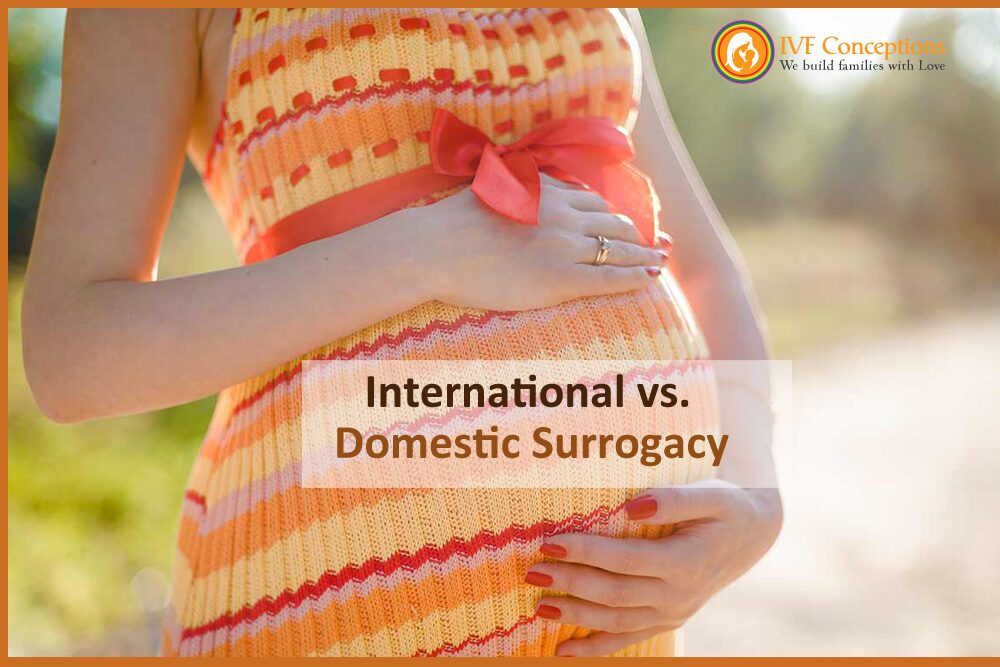Surrogacy In Maryland: A Comprehensive Guide

Surrogacy In Maryland: A Comprehensive Guide with Legal Insights, Process, and Cost Breakdowns
Surrogacy in Maryland is legal, and the majority of intended parents can easily get a pre-birth order. Although there are no laws or precedents that provide for the enforcement of surrogacy agreements, lawyers have established a procedure that enables the court to issue pre-birth orders.
The pre-birth order states that the intended parents will be the child’s legal parents upon birth and that the surrogate is not a parent. The birth certificate designates the intended parents as the child’s parents.
According to case law and established practice, the state of Maryland permits gestational surrogacy for singles, unmarried couples, those using their own gametes, as well as those using donor eggs, sperm, or embryos. Maryland is a welcoming state for LGBTQ people.
An order for a pre-birth can be obtained by the intended parents.
Key Takeaways
- Maryland has implicitly approved gestational surrogacy through its legal system.
- Choosing a reputable surrogacy agency is crucial for a successful journey.
- Becoming a surrogate in Maryland is a noble and rewarding experience.
- Understand the legal intricacies of obtaining pre-birth parentage orders.
- The gestational surrogacy journey involves a step-by-step process with medical and legal considerations.
Get in touch for a Free Surrogacy Consultancy:
📲 +91-8800481100 ( WhatsApp, Line, Viber)
Surrogacy costs resources worldwide:
Top 4 cheapest countries for surrogacy
Best Countries for Surrogacy 2024- Top International Destinations
Risks of international surrogacy
Global International Surrogacy Options
Surrogacy In Mexico-Everything Intended Parents Need To Know
Cheapest Country For Gay Surrogacy- Colombia
Low-cost surrogate mother in Argentina

An Overview Of Surrogacy in Maryland
Gestational surrogacy is “somewhat friendly” in Maryland. Although pre-birth and post-birth orders may be obtained by intended parents, no statute or case law provides enforcement of surrogacy contracts, thus the court’s decision on whether to issue parentage orders in these situations.
However, intended parents can typically get a pre-birth order without any legal issues. Pre-birth parentage orders are granted in surrogacy cases by Maryland courts; however, this varies by court. In a pre-birth order, both intended parents may be recognized as the child’s legal parents, even if neither is the child’s genetic parent. Surrogacy contracts are not covered by any local legislation in Maryland.
Since Maryland does not have surrogacy regulations that address this issue, it is recommended to speak with a surrogacy attorney there to get legal advice. However, surrogacy is legal in Maryland and operates similarly to how it does in other jurisdictions with ambiguous surrogacy legislation.
Both parties must have their surrogacy lawyers to help them comprehend the legal ramifications of the procedure and create a binding contract. In Maryland, second-parent adoptions are possible. U
nmarried intended parents who are unable to prove their paternity through a parentage order may do so through this postnatal adoption procedure. Stepparent adoptions can be completed by married intended parents. To prove their parental rights, intended parents from Maryland who carry out surrogacy in a state where they are unable to acquire a paternity order might have to complete an adoption after birth.
Surrogacy Laws in Maryland
Maryland Surrogacy Laws: A Comprehensive Overview
Understanding Maryland’s surrogacy laws is crucial for both surrogates and intended parents. Legal clarity ensures a smooth process and protects the rights of all parties involved.
Pre-Birth Parentage Order: Securing Your Parental Rights
 Obtaining a pre-birth parentage order is a critical legal step, ensuring that the intended parents are recognized as the legal parents from the moment of birth. Maryland’s surrogacy laws are an intricate set of statutes and rules that control the process.
Obtaining a pre-birth parentage order is a critical legal step, ensuring that the intended parents are recognized as the legal parents from the moment of birth. Maryland’s surrogacy laws are an intricate set of statutes and rules that control the process.
These rules in Maryland are made to be transparent, secure, and fair to all parties involved, including intended parents, surrogates, and the priceless children born into the world as a result of this amazing partnership.
Surrogacy is not specifically covered by any laws or regulations in Maryland.
Surrogacy agreements have, however, generally been accepted by Maryland courts, particularly if they are properly documented and carried out by specific rules.
It’s crucial to remember that legal interpretations and rules might change; therefore, it’s advised to get the most recent information by consulting a trained legal practitioner or legal resources. Typically, Maryland’s surrogacy regulations take the following important factors into account:
Surrogacy Agreements
Surrogacy contracts are frequently utilized in Maryland to specify the terms and circumstances of the surrogacy relationship, even though they are not specifically mentioned in the law.
The roles and responsibilities of each party, monetary compensation, medical care, and the intended parents’ legal rights to the child are all possible topics covered in these contracts.
Parentage Order
After the baby is delivered, the intended parents can ask the court for a formal parentage order. This decree outlines their parenting obligations legally and often calls for the surrogate to renounce all parental rights. The surrogacy contract’s legality and whether the child’s best interests are being met could both have an impact on the court’s judgment.
Consent And Termination
The agreement of each party is essential in surrogacy agreements. Before beginning, prospective parents, sperm or egg donors, as well as surrogates, must give their informed consent. In cases of medical need or under other conditions, ending the pregnancy is a decision that must be reached and recorded.
Compensation
In Maryland, surrogates should be paid fairly, often covering the costs of pregnancy and childbirth. Maryland law might not specifically address or regulate commercial surrogacy, where surrogates are paid over and beyond expenses.
Medical Screening And Care
To make sure that they are both physically and mentally prepared for the pregnancy journey, surrogates frequently undergo medical and psychological exams. The surrogate’s pregnancy and delivery-related medical expenses are covered by the intended parents.
Egg And Sperm Donation
Additional legal questions may come up if gamete donation is a part of the surrogacy arrangement, particularly regarding the donor’s parental rights and obligations.

How Much Does Surrogacy Cost in Maryland?
The cost of surrogacy in Maryland can be between $100,000 and $150,000. If the parents opt to support numerous pregnancies or the initial fertilization attempts are unsuccessful, that sum may increase to $300,000 or more.
You will be responsible for paying the costs of IVF, as well as the gestational carrier’s time and services, legal fees, and possibly agency fees when you use a surrogate. Aspiring parents should budget for the following typical surrogacy costs:
- Agency fees:-To start working with an agency, a retainer of between $15,000 and $30,000 may be needed.
- Surrogate compensation surrogates may receive remuneration ranging from $30,000 to $50,000.
- Hospital bills:-Surrogates will go through a battery of medical exams, blood work, hormone injections, and other tests and procedures. IVF costs anything from $8,000 to $30,000. Using donor sperm or eggs may cause those prices to rise more.
- Legal Fees:- It’s crucial to complete the legal papers properly so that everyone is aware of how the pregnancy will develop, especially if unanticipated issues occur. They could cost between $15,000 and $20,000.
- Unrelated expenditures:- There are numerous more costs to budget for on behalf of prospective parents or surrogates. If the gestational carrier lives far away, those expenses may mount up. Clothing for expectant mothers lost wages, the cost of breast milk, and counseling costs are examples of additional costs.
 Surrogacy For Intended Parents In Maryland
Surrogacy For Intended Parents In Maryland
In re Roberto d.B. (2003), Maryland’s highest court tacitly recognized gestational surrogacy; as a result of Maryland’s published case law, it is implicitly authorized and tolerated in the state.
Although there is no legislative legislation regarding surrogacy, Maryland courts normally find surrogacy agreements to be enforceable, though the outcomes and legal procedures do tend to differ by judge.
Some of the most typical queries in the minds of intended parents about surrogacy in Maryland are included below.
Is Maryland a legal state for gestational surrogacy?
Yes. Maryland does not currently have any surrogacy legislation. However, the Maryland Court of Appeals issued a decision in 2007 that implied support for gestational surrogacy contracts.
In Maryland, is traditional surrogacy legal? Yes, but there are risks involved with the process. An opinion on compensated traditional surrogacy arrangements was published by the Maryland Attorney General in 2000, which said that “surrogacy contracts that involve the payment of a fee to the birth mother are, in most instances, illegal and unenforceable under Maryland law.”
A standard surrogacy agreement may not be enforceable; therefore, the intended mother would have to pursue adoption to complete the legalization of her parental rights. As a result, few lawyers will take on cases involving traditional surrogacy.
Is Maryland a legal state for compensated surrogacy?
Yes. The base remuneration that a gestational surrogate can get for her services is determined when the surrogacy contract between surrogates and intended parents is drafted; there are no surrogacy regulations governing this in Maryland.
In Maryland, is Same-Sex surrogacy legal?
Yes. Except for probably needing an egg or sperm donor to finish the IVF treatment, same-sex couples, and LGBT+ intended parents have the same legal rights and will largely go through the same surrogacy process.
What happens in situations where intended parents use donor eggs, sperm, or embryos?
Intended parents can often seek a pre-birth parentage order even if they use donor eggs, sperm, or embryos since pre-birth orders are available to them regardless of their marital status, sexual orientation, or genetic tie to the child.
Related surrogacy Costs guides:
What is the average surrogacy cost?
How much does surrogacy cost in Ukraine?
How much does surrogacy cost in Georgia?
How much does surrogacy cost in India?
What is the Surrogacy Cost in Colombia?
What is Surrogacy cost in Mexico?
What is surrogacy cost with family members?
Surrogacy Process In Maryland
 As an intended parent or potential surrogate, if you’re thinking about the surrogacy procedure in Maryland, get in touch with a surrogacy professional right away to learn more. Even though each person’s surrogacy journey is distinct, there are some typical steps you’ll follow in Maryland:
As an intended parent or potential surrogate, if you’re thinking about the surrogacy procedure in Maryland, get in touch with a surrogacy professional right away to learn more. Even though each person’s surrogacy journey is distinct, there are some typical steps you’ll follow in Maryland:
STEP 1: CHOOSE IF SURROGACY IN MARYLAND IS RIGHT OPTION FOR YOU.
STEP 2: WITH YOUR CHOSEN SURROGACY PROFESSIONAL, FORM A SURROGACY PLAN
STEP 3: COMPLETE THE PRE-SURROGACY SCREENING
STEP 4: FIND THE RIGHT SURROGATE FOR YOUR SURROGACY PROCEDURE
STEP 5: MAKE A SURROGACY AGREEMENT
STEP 6: COMPLETE THE MEDICAL PROCESS AND EMBRYO TRANSFER
STEP 7: WELCOME YOUR BABY AND COMPLETE THE PROCESS OF SURROGACY IN MARYLAND.
Finding A Surrogate Mother In Maryland
A woman who carries and gives birth to a child on behalf of another person or couple is referred to as a surrogate mother, or simply a surrogate. There is a careful and thoughtful process involved in finding a surrogate mother.
The following are a few typical techniques for finding a surrogate mother:
Independent Matching Websites: There are websites made just to bring intended parents and prospective surrogates together. These systems frequently enable secure communication while allowing both sides to build profiles and search for matches.
Support Groups and Events: Meetings between intended parents and surrogates are frequently organized by groups like RESOLVE or neighbourhood support groups. Meeting possible surrogates can be accomplished by attending these events.
Social media and surrogacy support groups: Numerous surrogacy support groups are hosted through social media sites, particularly Facebook. These groups can be a great way to learn from others’ experiences and discover surrogate mothers.
Online surrogacy communities and forums: There are online platforms and discussion groups where prospective surrogates and intended parents can get in touch. People can ask questions, discuss their experiences, and meet possible mates on these networks.
Surrogacy Agencies: These organizations are focused on providing surrogacy services. They may be able to assist in matching intended parents with capable surrogate mothers. These organizations typically have stringent screening procedures for both intended parents and surrogates.
Additional Resources:
Everything You Need To Know (in 2024)
How Much Does Surrogacy Cost Using Family Member
Can My Insurance Provider Pay My Surrogacy Costs?
How Much Does Surrogacy Cost in the USA ( 2024)?
Surrogacy Costs Breakdown for Intended Parents
 Conclusion
Conclusion
Embarking on a surrogacy journey in Maryland is a step towards fulfilling the dream of parenthood. With supportive agencies, clear legal frameworks, and a community dedicated to the cause, Maryland stands as a beacon of hope for those seeking the extraordinary gift of surrogacy.
In conclusion, gestational surrogacy in Maryland is a well-regulated and supported process. As you navigate this path, keep these key points in mind understanding Maryland’s surrogacy laws is crucial for both surrogates and intended parents. Legal clarity ensures a smooth process and protects the rights of all parties involved.
Get in touch for a Free Surrogacy Consultancy:
📲 +91-8800481100 ( WhatsApp, Line, Viber)
Frequently Asked Questions about Surrogacy in Maryland
1. What is surrogacy and how does it work in Maryland?
Surrogacy, also known as gestational surrogacy, is a legal arrangement in which a woman, known as the surrogate, carries and delivers a child for another person or couple, known as the intended parents. In Maryland, surrogacy is permitted, and the statutes and case law provide guidance on the legal aspects of surrogacy agreements and parentage.
2. What are the laws regarding surrogacy in Maryland?
Surrogacy is legal in Maryland, and there are specific statutes and case law that govern surrogacy arrangements. It is recommended to seek legal advice to ensure compliance with the Maryland surrogacy laws
3. How can someone become a surrogate in Maryland?
To become a gestational surrogate in Maryland, individuals can contact a surrogacy agency or surrogacy program surrogacy attorney in Maryland to navigate the legal requirements and surrogacy contracts.
4. What are the legal steps for intended parents and surrogates in Maryland?
Intended parents and surrogates in Maryland will need to establish parental rights through a pre-birth parentage order birth certificate
5. What are the compensation and costs associated with surrogacy in Maryland?
Surrogate compensation in Maryland typically includes base compensation, medical expenses, and other allowances. It is important to consult with a reputable surrogacy agency in Maryland.
FAQs For Surrogacy in the USA
 Q1. What is the process of surrogacy in the USA for intended parents? Ans. The surrogacy process in Maryland for intended parents involves multiple steps, starting with a consultation to discuss your story and questions. Working with an experienced agency in surrogacy guides you through milestones like choosing an agency, finding a surrogate, medical screening, and legal contracts.
Q1. What is the process of surrogacy in the USA for intended parents? Ans. The surrogacy process in Maryland for intended parents involves multiple steps, starting with a consultation to discuss your story and questions. Working with an experienced agency in surrogacy guides you through milestones like choosing an agency, finding a surrogate, medical screening, and legal contracts.
Q2. How much does surrogacy in the USA cost? Ans. The cost of surrogacy in the USA varies depending on the program you choose. The cost of surrogacy starts at $150,000 to $200,000 based on the specific services needed and the compensation of the surrogate mother and egg donor. For low-cost surrogacy, it is advised to consider “independent surrogacy or private surrogacy”, which costs less but requires more time and management.
Q3. What are some affordable surrogacy options? Ans. Affordable surrogacy options are:
- Opting for independent surrogacy arrangements.
- Using a surrogate mother within the family or friend circle.
- Considering the international surrogacy countries with affordable, low-cost surrogacy programs like Mexico, Colombia, Argentina, Georgia, and Ukraine.
Q4. What are the requirements for becoming a surrogate mother in the USA? Ans. The requirements for becoming a surrogate mother are:
- To become a surrogate mother, you must meet certain criteria.
- You should have delivered a child of your own and be parenting at least one child.
- Uncomplicated pregnancies and deliveries are necessary, as documented by medical records.
- Age requirements are between 21 and 44 years old.
- The Body Mass Index (BMI) is typically no higher than 33.
- Surrogates should be citizens, legal residents, or legal immigrants of the United States.
- medically and psychologically in sound condition.
Disclaimer: All legal information on this website is intended only as a guide and is not a replacement for the opinions of licensed legal professionals/Medical professionals. Some information may have changed since the time of publication. We advise you to consult a licensed attorney/Medical expert with authority in fertility/surrogacy processes.

 Surrogacy For Intended Parents In Maryland
Surrogacy For Intended Parents In Maryland Conclusion
Conclusion